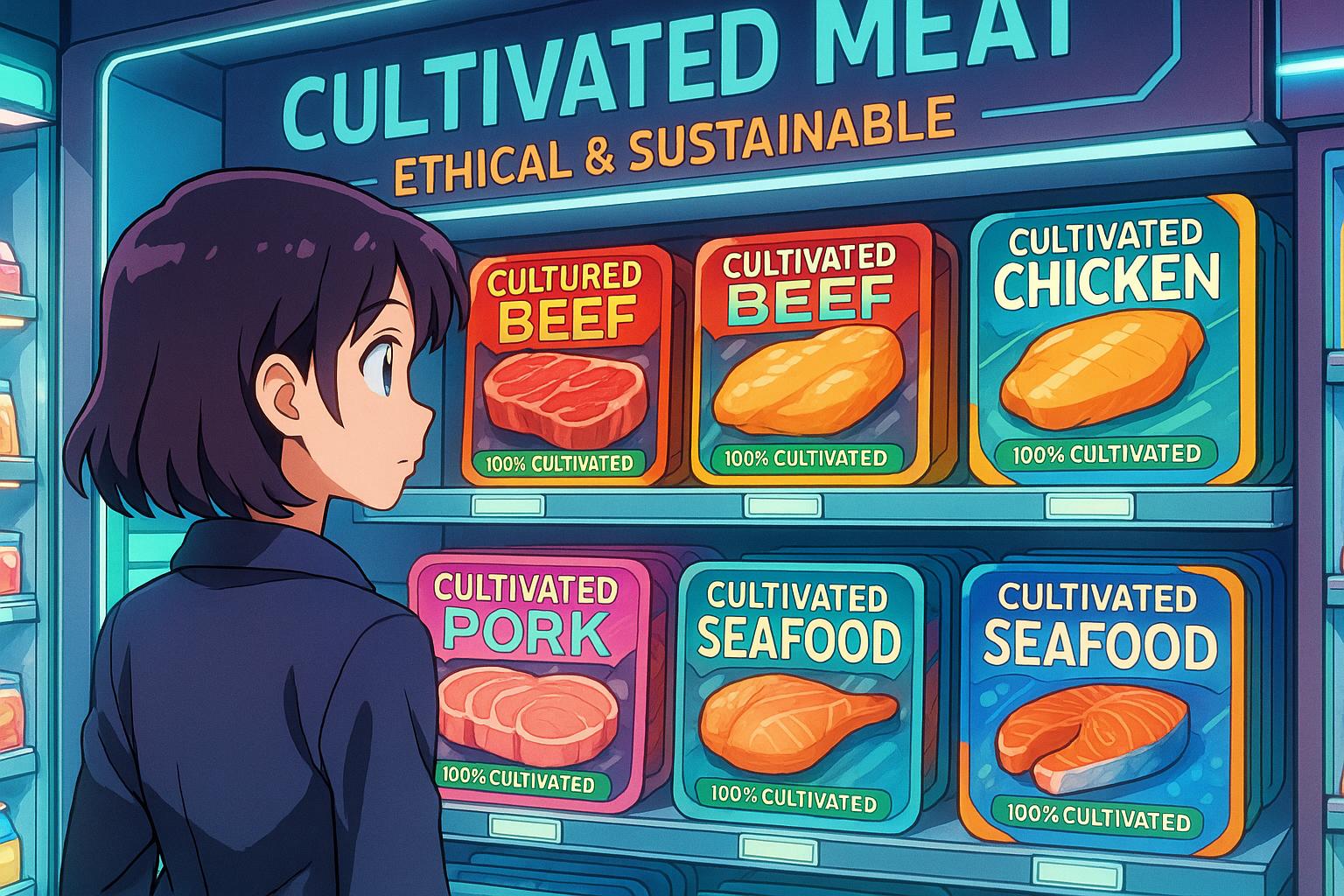In a rapidly evolving food landscape, the emergence of cultivated meat—meat produced from animal cells in controlled environments—promises to reshape our culinary experience. David Bell, a digital marketing expert and long-time vegan, has taken a proactive approach to this innovation by launching an online platform dedicated to selling cultivated meat across 18 European countries. Despite the regulatory approvals in the EU being at least a year away, Bell believes that “everything starts before it’s ready,” emphasizing the importance of preparation in a fast-changing market.
The platform, CultivatedMeat.co.uk, aims to create visibility and accessibility for this novel protein source, allowing users to explore a diverse range of products, from traditional meats like beef and chicken to more exotic offerings such as crocodile and kangaroo. Alongside the shopping experience, the site features educational content to help consumers understand the production process and potential environmental benefits of cultivated meat. Bell envisions this venture as not merely an e-commerce site but a central hub for the cultivated meat movement and a means of generating consumer interest even before the products are legally available.
Bell's timing seems strategically sound. Recent reports suggest that the UK could see cell-cultivated meat available for sale within a few years, with applications for various meat types already submitted to the Food Standards Agency (FSA). This is significant, as the UK has cultivated a reputation as a welcoming market for innovative food products, buoyed by a growing demographic of vegans, vegetarians, and flexitarians. The FSA is actively working to expedite the approval process, launching initiatives that engage with academic bodies and the cultivated meat industry to evaluate safety and efficacy.
As Bell illustrates, the future of consumer access to cultivated meat lies in its online availability. Unlike traditional retail channels that might only stock a limited selection, an e-commerce platform can cater to niche interests, offering a broader array of products while enabling targeted marketing and storytelling. The internet is already showing its potential as a launchpad for new food categories, shaping consumer habits and educational initiatives. He suggests that early adopters are likely to seek these products online, and as the category grows, the platform will evolve into a critical resource for both consumers and producers.
Moreover, the logistical model for cultivated meat sales is adaptable. Bell is developing partnerships with cultivated meat firms and distribution experts to create a reliable cold chain for delivering fresh or frozen products when they are ready to hit the market. This flexibility positions the platform to handle various revenue streams, from traditional product sales to possible collaborations and sponsorships.
Interestingly, while Bell's shop prepares for market entry, key players in the cultivated meat industry are also making strides in securing regulatory approvals across Europe. Firms like Gourmey and Mosa Meat are at the forefront, having submitted applications for foie gras and beef fat, respectively, while also looking towards eventual entries into the retail space. Observers note that these steps are vital for paving the way for more mainstream acceptance and availability of cultivated meat products.
As the industry stands on the brink of what could be a transformative period, Bell’s initiative reflects a larger trend towards ethical and sustainable consumption. The ongoing narrative around cultivated meat encapsulates a reconciliation of ethics and taste, enabling consumers to enjoy meat products without the associated ecological and ethical dilemmas of traditional animal farming. This innovation not only holds promise for the sustainability of our food systems but could also redefine our relationship with meat in a more compassionate and environmentally-conscious way.
Bell’s foresight, combined with the collective efforts of cultivated meat startups, heralds an interesting future for the European market. With a robust online presence and engaged consumer base, the cultivated meat sector could soon enter the mainstream, fulfilling both ethical aspirations and culinary desires.
Reference Map:
- Paragraph 1 – [1], [2]
- Paragraph 2 – [1], [3], [6]
- Paragraph 3 – [5], [7]
- Paragraph 4 – [4], [5]
- Paragraph 5 – [3], [6]
- Paragraph 6 – [1], [4]
- Paragraph 7 – [1], [6]
- Paragraph 8 – [2], [5], [7]
Source: Noah Wire Services
